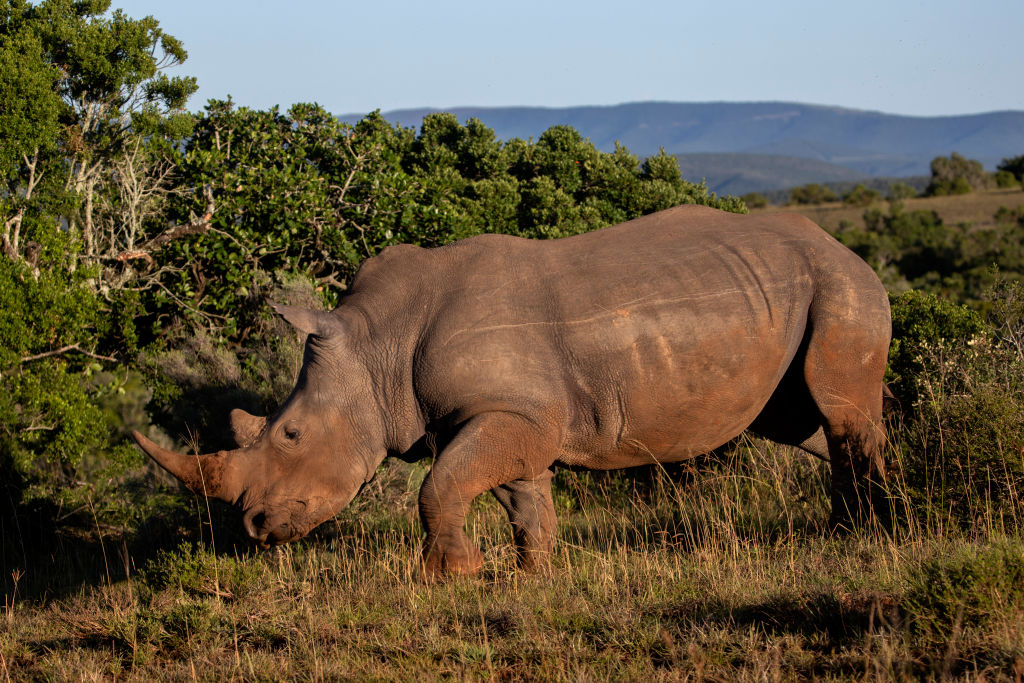North Korea Exploits Diplomatic Ties to Traffic Wildlife Parts
ADF STAFF
New reporting shows how North Korean diplomats stationed in Southern Africa are smuggling large volumes of rhino horn out of the region to buyers in China and other countries. The millions of dollars in proceeds help North Korea evade international sanctions and fund its nuclear weapons program.
The illegal trade in wildlife parts is just one strand in the larger web of criminal and illicit activities by North Korea. Historically, North Korea has used its diplomats to conceal money laundering and the smuggling of alcohol, drugs, gold, ivory and tobacco. The money flows into the hands of the nation’s elites and funds many of its operations, according to experts.
“Broader North Korean state practice suggests that most, if not all, the funds generated [from rhino horn] will go into state coffers,” researchers Matthew Redhead and Sasha Erskine reported for the United Kingdom’s Royal United Services Institute (RUSI). “But the revenues are highly unlikely to be of the same magnitude as those generated by criminal enterprises such as drug smuggling and cybercrime.”
The U.N. Panel of Experts overseeing North Korean sanctions estimates that its wildlife smuggling operations in Africa generated $65 million between 2022 and 2023, which Redhead describes as “a heck of a lot of horn.”
That amount of revenue suggests North Koreans are not smuggling rhino horn piecemeal in personal luggage or diplomatic pouches, Redhead told NK News, a site that reports on North Korea.
“This makes me wonder whether what we’re seeing here is an effort to ‘industrialize’ their smuggling efforts, using channels more typically used for their sanctions-evasion efforts,” Redhead said.
Among the North Koreans publicly identified in connection with wildlife smuggling are Yi Kang Dae, a South Africa-based North Korean intelligence official named by Botswana’s Weekend Post, and Han Tae Song, North Korea’s former Switzerland-based ambassador to the United Nations.
Han was recalled at the end of 2023 after an investigation into his wildlife smuggling while he was posted to the North Korean embassy in Zimbabwe three decades before. Zimbabwe expelled Han in 1992 for wildlife smuggling.
According to the Weekend Post, Han financed two smuggling operations between 2022 and 2023 that moved at least 18 rhino horns and 19 elephant tusks from Botswana across South Africa and Zimbabwe into Mozambique. From there, the items were shipped to China.
Han and Yi are part of a decadeslong effort by North Korean officials who have exploited their relationships with African countries by trading in ivory and other illegal wildlife parts to support the regime and their own diplomatic operations when official funding runs dry.
“Given many of these countries’ historic links with North Korea, gratitude for past support, and a more permissive view about the international wildlife trade, there has been a tendency for some local officials to turn a blind eye to North Korean activities,” Redhead told NK News.
“Local governments will eventually complain about the most egregious examples of bad North Korean behavior, but they haven’t made a systematic effort to stop it — so far,” he added.
North Korea’s involvement in illegal wildlife trafficking is likely to change as the country closes embassies around the world. Since the end of 2023, North Korea has shuttered six embassies in Africa, including longtime diplomatic outposts in Angola, the Democratic Republic of the Congo, Guinea, Libya, Senegal and Uganda.
“With the North Korean diplomatic presence declining, that channel is going to become more difficult to use,” Redhead told NK News. “I suspect we will see North Koreans operating undercover as third-party nationals (for example as Chinese and Vietnamese) playing a greater role in sourcing and transporting these items.”


Comments are closed.